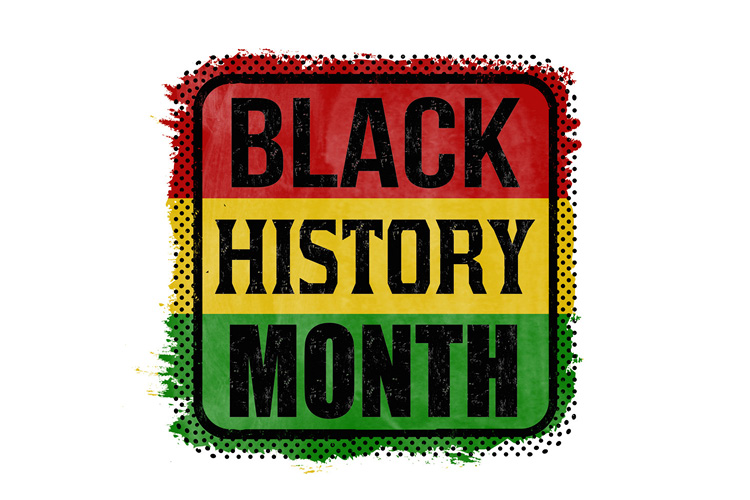
Black History Month is an annual celebration of achievements by African Americans and a time for recognizing their central role in U.S. history.
Also known as African American History Month, the event grew out of “Negro History Week,” the brainchild of noted historian Carter G. Woodson and other prominent African Americans. Since 1976, every U.S. president has officially designated the month of February as Black History Month. Other countries around the world, including Canada and the United Kingdom, also devote a month to celebrating Black history.
Black History Month is a great time to celebrate, honor, recognize, and delve deeper into Black history. Expand your knowledge, share with others, and get involved in your communities.
VolunteerMatch
13 Things You Can Do Right Now
1. Learn About the Man Behind Black History Month
Carter G. Woodson is considered to be the person who created Black History month. Learn more about him and how Black History Month started.
2. Join the 2022 Black History Month Virtual Festival
Attend Black History virtual events this month — all from the comfort of your home. The theme for 2021 is The Black Family: Representation, Identity, and Diversity.
3. Listen to The 1619 Project
The podcast The 1619 Project reframes Black history from being a separate and isolated unit to wholly essential to the American narrative.
4. Help Shape Our Future
Volunteer for a more just and equitable world. Help to shrink the inequality gap by giving your time to combat food insecurity and homelessness. Nearly 200,000 volunteers are needed today to fight hunger. Nonprofit organizations have created safer ways to volunteer in-person following CDC guidance. Over 170,000 volunteers are currently needed to support people in need of safe, fair housing.
5. Read to Your Kids About Black History
Integrate Black history into your nighttime routine with children’s books centered around Black historical figures and events.
6. Organize a Virtual Field Trip
Do a virtual field trip to the Smithsonian American Art Museum in Washington, D.C with your children’s school or gather a small group of their friends. They can learn more about a diverse body of artwork from African American artists and hear about the historical, social, cultural events, and life experiences that inspired their work.
7. Get the Next Generation Involved
Empower the next generation of volunteers. Here’s a curated list of campaigns to help the youth in your lives be of service to help shape a kinder world from our partner DoSomething.org.
8. Support Social Justice
Volunteer virtually or locally to support social justice causes and play a role in creating history.
9. Take a Deeper Dive into Black History
Research and learn more about Black history. Here are some facts to get you started. Then go deeper and see how Black history is a part of the town, city, or state in which you live.
10. Share What You’ve Learned
Post on social media, text, chat and talk about what you have learned with your family, friends, and neighbors.
11. Do a Virtual Lunch and Learn at Work
Create an interactive discussion where you share what you have learned about Black History with your co-workers.
12. Become a Vaccine Volunteer
Given the legacy of deep trauma and betrayal by the U.S. healthcare system, vaccine hesitancy is understandably prevalent amongst people of color. America needs volunteers to help organize vaccination efforts and bridge the confidence, information, technology, and distribution divides.
13. Create Movements of Your Own
Become involved in advocacy and human rights. Volunteer virtually or locally and create movements of your own.
Points of Light
Educational Resources For Black History Month
The first step in driving change is ensuring you’re educated on the topics at hand. Identify resources that will help you approach the issue from an awareness standpoint. Education helps those of us contributing to the cause to confront stereotypes and biases we might be operating with. It reframes racism’s history and its influence on our everyday lives and honors the lived experiences of the people we’re attempting to help, creating greater empathy.
In January, Points of Light hosted Anneliese A. Singh, Ph.D., LPC, author, professor, and Associate Provost for Diversity and Faculty Development at Tulane University, in our monthly Listen. Learn. Act to End Racism conversation. Dr. Singh, along with speaker Doug Osborne, M.A., health educator, Southeast Alaska Regional Health Consortium, helped raise our race-consciousness by challenging stereotypes, reframing the history of racism and its impact on our lives, and sharing why healing from racism is an integral part of dismantling it. You can watch the discussion and access the list of associated resources here.
On Feb. 25, Points of Light will host its next Listen. Learn. Act to End Racism discussion about the dynamics and importance of academic institutions, in collaboration with historically Black colleges and universities and other civic and corporate organizations, in preparing the next generation of social justice-oriented leaders. Register here and join us live.
Fairfax County Government
Virtual Black History Month Program
Explore black history in Fairfax County and honor black perseverance and resiliency through speakers and entertainment. Fairfax County, in partnership with Cox Communications, proudly presents the first virtual Black History Program, taking place on Friday, Feb. 19 from 7-8:00 p.m.
Tilly Blanding, retired Fairfax County social worker, will emcee the event, which will also feature:
- Jeff McKay, Chairman of the Fairfax County Board of Supervisors
- Bryan Hill, Fairfax County Executive
- Gloria Addo-Ayensu, MD, Director of Health for Fairfax County
- Lynnette Clark, Field Operations Director, Cox Communications
- Professor Mark Hopson, Director of African and African American Studies at George Mason University
- Dumi RIGHT, hip-hop artist
- Musical selections from the Hamilton Boys, Amber Iman, and more
The program can be viewed on Channel 16 or via live stream here. After Feb. 19, the event can be viewed on demand.

